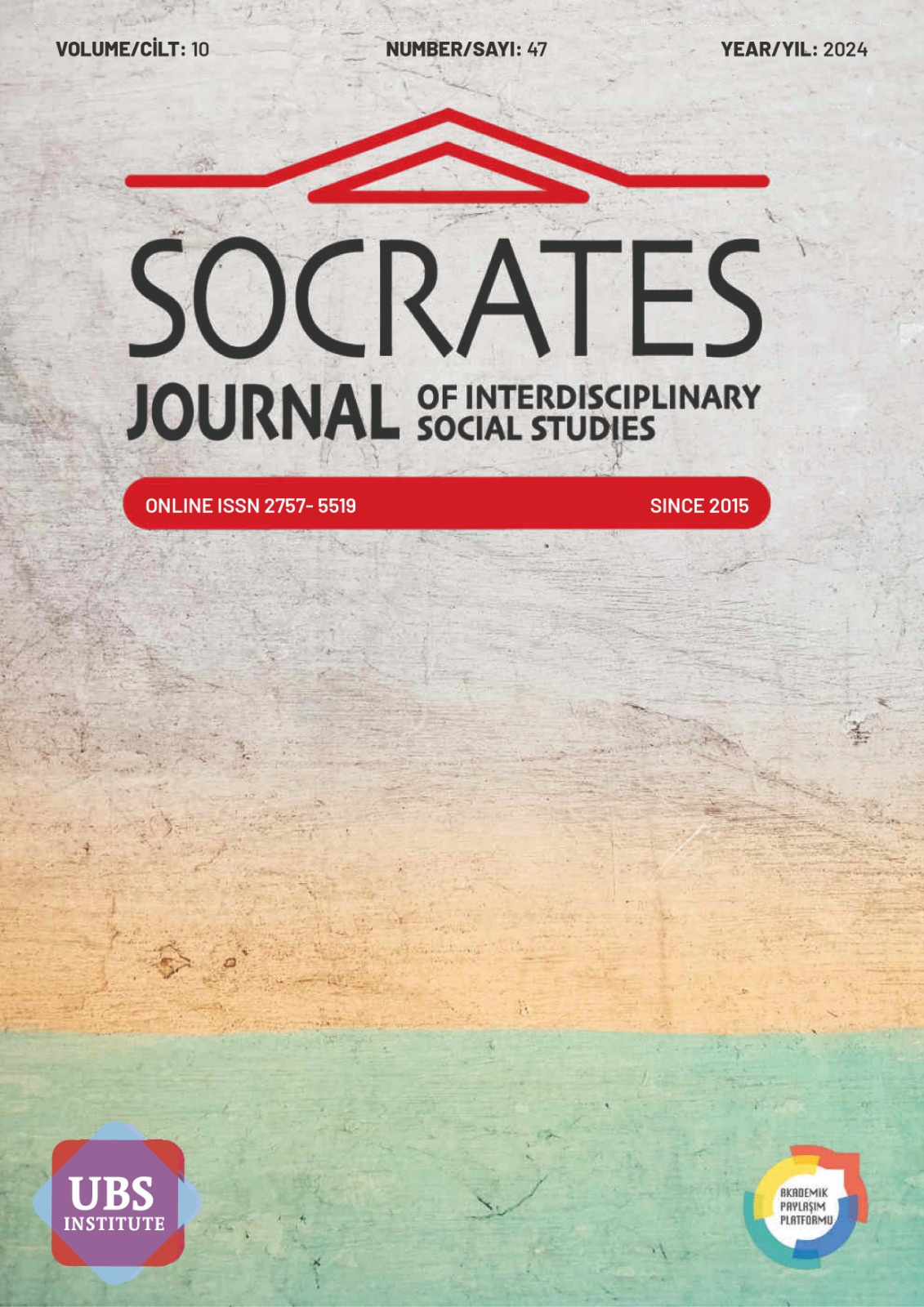THE ROLE OF MULTIPLE INTELLIGENCES THEORY AND ECOLOGICAL SYSTEMS THEORY IN IDENTIFYING SPECIALLY TALENTED INDIVIDUALS
THE ROLE OF MULTIPLE INTELLIGENCES THEORY AND ECOLOGICAL SYSTEMS THEORY IN IDENTIFYING SPECIALLY TALENTED INDIVIDUALS
DOI:
https://doi.org/10.5281/zenodo.14230535Keywords:
Visual Arts, Giftedness and Talent, Ecological Systems Theory, Multiple Intelligence TheoryAbstract
Gifted and talented individuals are those who think and produce innovations, revolutions, and developments that direct the fate of countries and the world. Identifying these individuals at a young age and making the right direction for them constitute great importance for every country. At this point, there are Science and Art Centres (BİLSEM) and a diagnostic system in Turkey. However, when the system is considered, it has been revealed by many researchers that there are some deficiencies and malfunctions. This research aims to shed light on one of these shortcomings. For this reason, the purpose of this study is to identify the Visual-Spatial Intelligence type, which is one of the intelligence types stated by Gardner's Multiple Intelligence Theory and his study. Besides, it is thought that environmental factors and their effects on individuals should not be ignored to reveal the situation of individuals while making a diagnosis. For this reason, Urie Bronfenbrenner's Ecological Systems Theory constitutes the theoretical framework of the research.
References
Altan, M. Z. (2012). Eğitim, çoklu zekâ kuramı ve çoklu zekâ kuramında onuncu boyut: Ahlaki zekâ. Fırat Üniversitesi Sosyal Bilimler Dergisi, 22(1), 137-144
Ataman, A. (Ed.). (2009). Özel Gereksinimli çocuklar ve özel eğitime giriş. (7.Baskı) Ankara: Gündüz
Çitil, M. (2016). Üstün yetenekli öğrencilere sunulan olumlu davranışsal destek temelli problem davranışları önleyici sınıf yönetimi uygulamaları: Eylem araştırması. Doktora tezi, Gazi Üniversitesi, Ankara.
Çitil, M. (2018). Türkiye’de üstün yeteneklilerin eğitimi politikalarının değerlendirilmesi. Milli Eğitim Dergisi, 47(1), 143-172.
Gardner, H. (1999). Intelligence Reframed: Multiple Intelligences for the 21st Century. New York: Basic Books.
Gardner, H. (2003). Multiple intelligences after twenty years. Chicago, Illinois: American Educational Research Association.
Kamenopoulou, L. (2016). Ecological systems theory: A valuable framework for research on inclusion and special educational needs/disabilities. Pedagogy: Bulgarian Journal of Educational Research and Practice, 88(4), 515-527.
Sak, U. (2011). Üstün Zekâ̂lılar: Özellikleri tanılanmaları eğitimleri. Ankara: Maya Akademi Yayınevi.
Sak, U., Ayas, M. B., Sezerel, B. B., Öpengin, E., Özdemir, N. N., & Gürbüz, Ş. D. (2015). Gifted and talented education in Turkey: Critics and prospects. Turkish Journal of Giftedness Education, 5(2), 110-132.
Sivrikaya, A. (2018). Eğitimde çoklu zekâ kuramı. Atatürk Üniversitesi Sosyal Bilimler Dergisi, 10(45), 123-132.
https://tr.wikipedia.org/wiki/%C3%87oklu_zek%C3%A2_teorisi, 24.09.2024
https://www.zen.com.tr/ekolojik-sistemler-kurami/, 24.09.2024
Downloads
Published
How to Cite
Issue
Section
License
Copyright (c) 2024 Socrates Journal of Interdisciplinary Social Studies

This work is licensed under a Creative Commons Attribution 4.0 International License.


